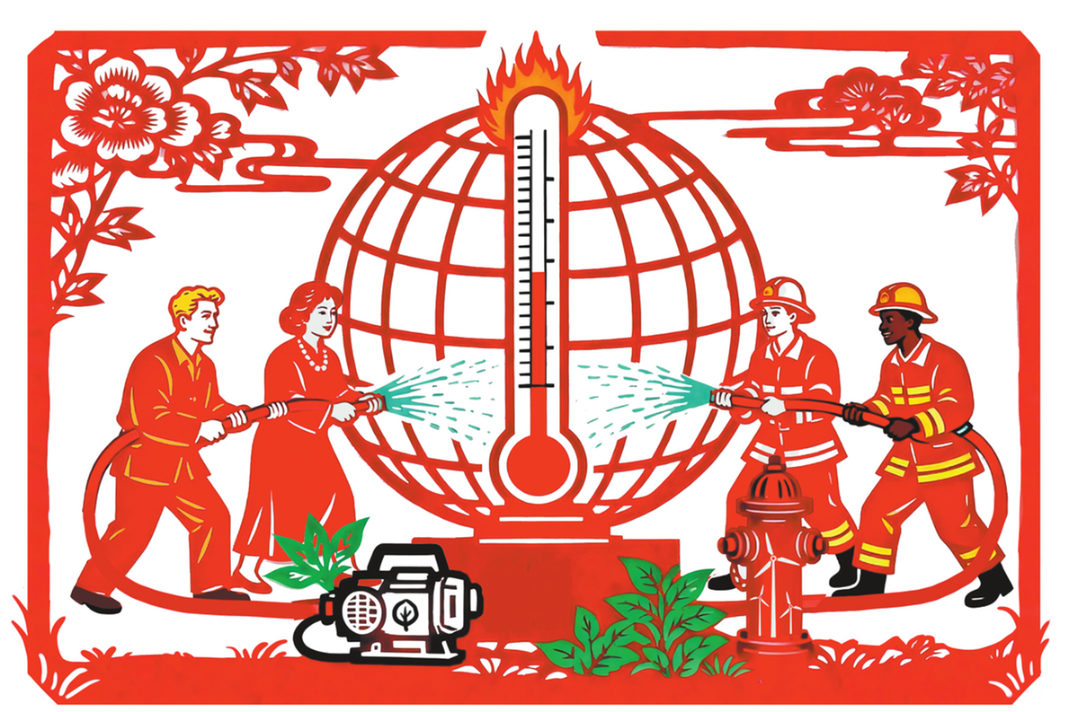Stakes couldn't be higher
US raising tariffs on Chinese-made solar imports would sacrifice a shared sustainable future for marginal commercial gains today


US raising tariffs on Chinese-made solar imports would sacrifice a shared sustainable future for marginal commercial gains today
Last month, a bipartisan group of US senators called on President Joe Biden to increase tariffs on Chinese-made solar imports. They argue China's heavily subsidized products undermine the efforts of the United States to rebuild domestic manufacturing. However, imposing additional tariffs would be a regressive step, threatening the US' vibrant clean energy economy and green jobs. It risks unwinding climate progress and international cooperation at this pivotal moment when solar power is essential for an urgent and just transition. Rather than confrontation, competing clean tech superpowers must prioritize the shared goal of rapid decarbonization.
The powerful US solar lobby argues that cheap Chinese photovoltaic imports have posed threats to US manufacturers and energy security. They downplay the vast economic potential of affordable panels to electrify the US with sustainable energy and downsize carbon footprints across key industries, not to mention tariffs are like quicksand — they spark retaliation ad infinitum until everyone gets dragged down, as the US-China trade war has showed.
First, knee-jerk tariffs will hurt US consumers and the adoption of green technologies the most. Chinese solar is unbeatably cheap. Average US panels cost around 40 cents per watt against Europe's 30 cents and China's 15 cents. Imposing solar tariffs risks torpedoing US President Biden's ambition to reach 50 percent clean electricity by 2030, as it will drive up prices when affordability is most critical for adoption.
Second, tariffs are job killers for the US' booming clean economy. Cheap Chinese imports drive rapid growth in higher-value solar construction, maintenance and design jobs on US soil. Destroying this golden goose by boosting a small fraction of manufacturing jobs makes little sense.
Third, cheap solar energy helps cushion the impact on households and businesses from rising electricity prices driven by volatile gas costs and reduces overall inflationary pressure at this delicate economic moment. Why undermine the competitiveness of renewable energy? It is the ultimate antidote to inflation and gas volatility.
Fourth, turnkey tariffs overlook China's geographical edge in production. According to a report by the International Energy Agency, China's investment in solar PV manufacturing capacity significantly exceeds that of other regions. It accounts for more than 80 percent of all manufacturing stages for solar panels. Whether Washington raises tariffs or subsidizes US capacity, hyper-efficient Chinese costs are impossible to compete with. For example, despite trade tensions, China's solar exports grew by 64 percent to $52 billion in 2022, according to the latest analysis from Wood Mackenzie. China's dominance in solar panel production cannot be easily offset by protectionist trade policies.
What's more, leading Chinese manufacturers such as Longi are expanding manufacturing elsewhere in Asia and even in the US.Washington would have to hike solar tariffs everywhere to make the smallest amount of sense.
Rather than reject China's manufacturing largesse, the US should capitalize on it. Solar energy accounts for just 6.2 percent of US electricity. With abundant land and sunlight, the US has only tapped a very small portion of its solar energy potential. Ambitiously incentivizing deployment of Chinese imports is critical to helping the US catch up in the accelerating global race to clean electricity.
More broadly, the climate crisis transcends borders and requires cooperation between the world's largest economies. We must avoid insular policies made for narrow political or commercial gains that undermine shared progress.
By bowing to protectionist lobbying pressure, the US administration also signals that parochial commercial interests override existential planetary ones.
This race can have no winners if climate action stalls worldwide. China's manufacturing ascent ensures solar energy can power emerging economies still reliant on dirty fuels.
Obstructing affordable technology from China would be a drag on the US' own green transition while damaging the trust and goodwill vital for global climate action.
The author is an associate professor at Hunan University's School of Public Administration. The author contributed this article to China Watch, a think tank powered by China Daily. The views do not necessarily reflect those of China Daily.
Contact the editor at editor@chinawatch.cn.


































